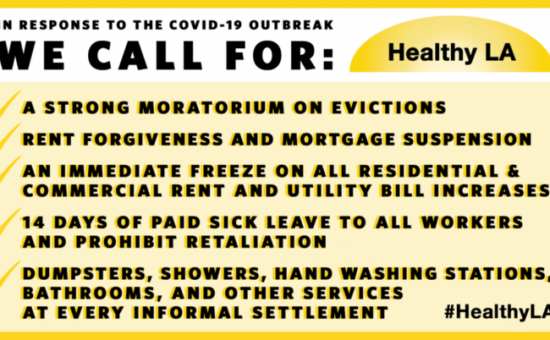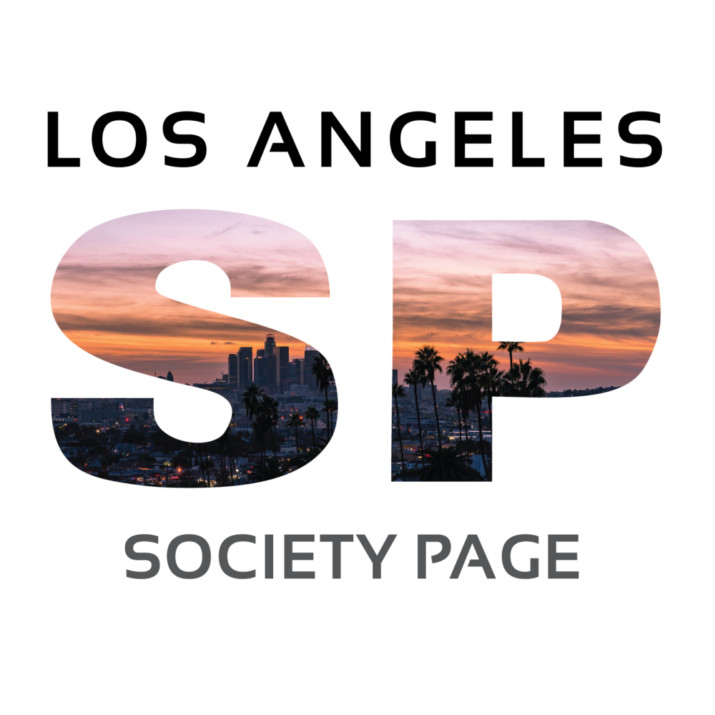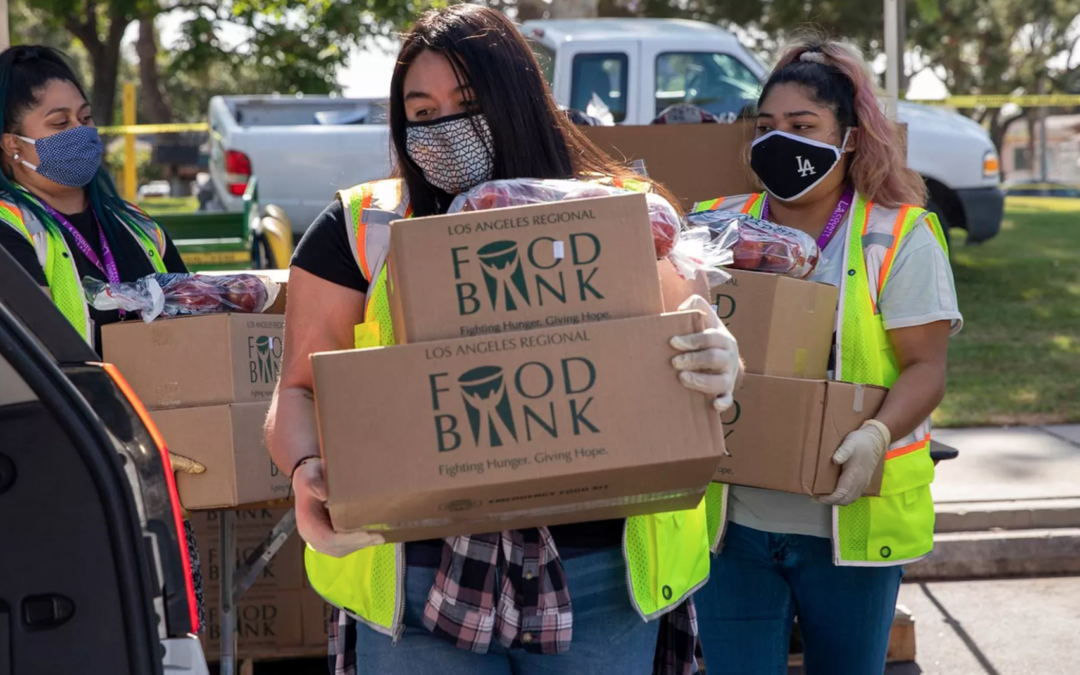Los Angeles, CA. The Healthy LA Coalition was established by a number of nonprofit organizations looking for solutions to the hardships caused by COVID-19 in the LA County area. (Above photo is of volunteers at Maywood YMCA for LA Regional Food Bank).
“We actually came together for the first time on the evening of March 12th,” said David Levitus, one of the original co-organizers of Healthy LA, “I ended up putting together the Healthy LA website for two hours on Saturday on the 14th, got it published, put up a Google form to collect signatures, and it just snowballed from there.”
It started with twenty-five people on a conference call discussing how they can help with pushing legislation that will help the community affected by the pandemic. After the creation of the official website, Healthy LA would quickly grow from a network of twenty-five in March to 335 by the end of the summer. While the majority of organizations that were added to the website were nonprofits, thirty-five religious congregations/denominations and twenty-eight regular businesses had also joined the coalition via application through Levitus’s Google form.
The rapid growth of the Healthy LA Coalition over the course of a few months allowed the network of organizations to develop thirty different legislative proposals to the board of supervisors for LA County.
“We just knew that the crisis was so big that even on the economic side, we needed nothing less than really bold proposals,” Levitus stated.
Twenty of the thirty proposals Healthy LA presented to the LA City Council and County Supervisors were enacted through immense lobbying efforts and communicating to the general public about the proposed legislation. The proposals covered a wide array of protection for the community including the unhoused, undocumented, and incarcerated individuals in the county.
Levitus considered their collective effort to increase worker protection was one of the most significant victories for Healthy LA as it guaranteed fourteen days of sick leave for an additional 440,000 LA workers. These city and county workers were not originally eligible for the federal paid sick leave policy as they worked in firms with over five hundred employees.

The initial website banner for Healthy LA and its main proposals which have nearly all been passed by the LA City Council and Board of Supervisors.
One of the proposals that have proved to be more challenging to pass on both a county and state level is a robust moratorium for foreclosures and evictions. There are currently protections for tenants who are unable to pay for their rent that has recently been extended to March 2021; however, if tenants are unable to pay the minimum 25% of their regular rent in the coming months, they can be evicted as early as February 1. Considering that the moratorium could have been extended as far as 2024, Healthy LA continues to advocate for tenants who face eviction in the next year.
Levitus stated that the long-term goal for Healthy LA is a “just recovery” as there are often marginalized groups of people who are left out of recovery as seen in the 2008 Great Recession. He hopes to continue giving workers a voice; as well as, tenants because a recent UCLA study showed roughly 20% of city residents have struggled to pay rent on time.
Levitus believes there is still a lot of work to be done to help those who need it most and that drastic social reform as seen after the Civil War and the Civil Rights Movement would make a positive difference to Los Angeles and beyond.
“We need a third reconstruction,” Levitus said in consideration to the coalition’s goals beyond COVID-19, “to transform our society that is racially and economically just, and I think we all share that perspective at Healthy LA so that’s really the long-term vision.”
From Healthy LA Coalition:
We are a network of more than 330 advocacy organizations, worker centers, labor unions, service providers, religious congregations, community groups, affordable housing developers, public interest lawyers, public health and safety organizations, and many more uniting to propose concrete solutions to the many hardships caused by the COVID-19 pandemic.





